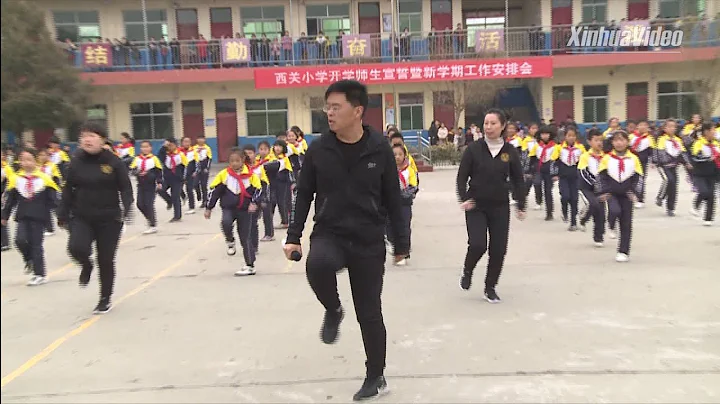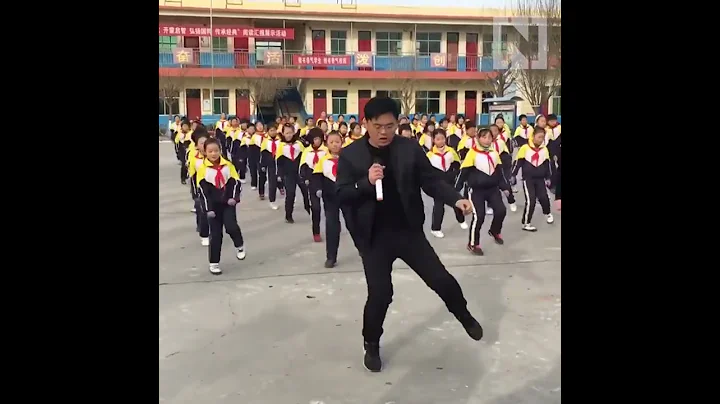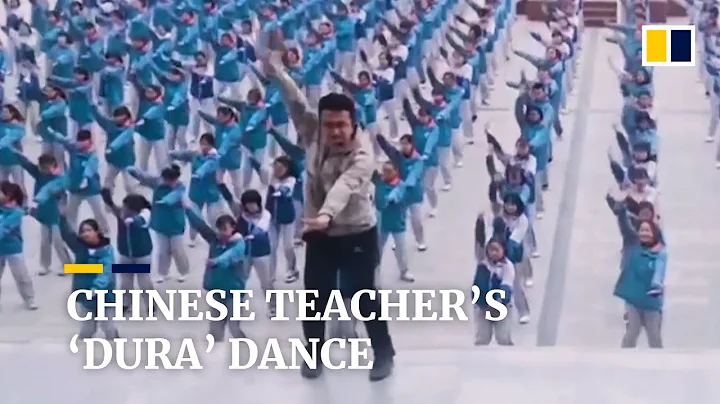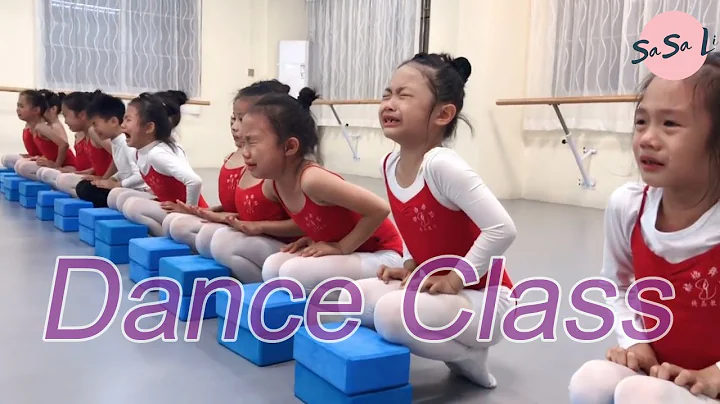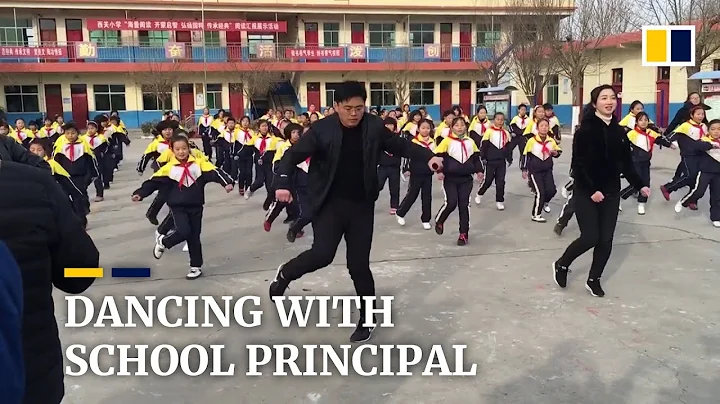
The picture shows the court hearing scene.
Introduction
When people are afraid that good deeds will bring trouble to themselves and dare not do anything, how should judicial judges correct their mistakes through real cases? Jiangsu Taizhou Xiao Ji, a 5-year-old dance class student, inadvertently caused his classmate Xiao Ding to fall on his back in order to help him get up. He suffered a thoracolumbar spinal cord injury resulting in paraplegia. Should this kind-hearted child be held liable for compensation? ? Guided by the core socialist values, the Taizhou Intermediate People's Court determined that acts of well-intentioned assistance were not illegal. Therefore, the second instance ruled that the dance center should bear all liability for compensation, and 5-year-old Xiao Ji was not liable for compensation. Up to now, the compensation of more than 1.58 million yuan in this case has been fully paid. Out of deep sympathy for Xiao Ding's injury, Xiao Ji's guardian voluntarily compensated 50,000 yuan, which was recognized and supported by Taizhou Intermediate People's Court.
Helping others leads to accident
"You can see from the surveillance video that the child really just stepped forward out of good intentions, and she didn't expect such serious consequences." Xiao Ji's guardian pointed to the surveillance screen said.
Xiao Ji and Xiao Ding went to the dance center to learn children's Chinese dance in February 2017 and May 2017 respectively. On December 15, 2018, Xiao Ding and Xiao Ji, both 5 years old, took dance classes at the dance center. According to the regulations of the dance center, parents are not allowed to enter the classroom when students are in class. They can observe the practice status of their children in the classroom through surveillance video in the waiting area.
On the day of the accident, there were 19 students with an average age of 5 in the class, and there was only one professional dance teacher. The teacher believed that except for 3 students (including Xiao Ji) who did not have basic lower back skills and could not practice lower back, he asked the other 16 students to practice lower back movements.
When the teacher asked the students to lower their waists and stand up, some students, including Xiao Ding, failed to get up in time. Xiao Ji, who was standing next to him, found out and walked up to Xiao Ding and pulled up his arms that were supporting him on the ground. Xiao Ding fell to the ground on his back, and then Xiao Ding showed discomfort. At this time, the only teacher in the classroom was in the front row helping other students who failed to get up in time. His back was turned to the two of them, and he did not notice the above situation in time.
Shortly after the students practiced lowering their waists, the dance class ended and Xiao Ding’s mother walked into the classroom to help her get dressed. Xiao Ding cried in pain. That night, Xiaoding felt unbearable pain in his lower limbs. His parents immediately sent him to a local hospital for examination. He was hospitalized at Nanjing Children's Hospital the next day and was diagnosed with thoracolumbar spinal cord injury. Later, forensic identification by the Forensic Identification Institute of Jiangsu University revealed that Xiaoding suffered paraplegia due to trauma to the thoracolumbar spinal cord, accompanied by severe defecation dysfunction and severe urinary dysfunction, and completely lost the ability to work, constituting a first-level human disability and requiring long-term care.
Paraplegic girl sued the court

After the accident, several parties negotiated for Xiao Ding's personal injury compensation for many times to no avail. Xiao Ding's guardian sued the dance center, Xiao Ji and his guardian to the court.
During the court hearing, Xiao Ding’s guardian believed that the dance center failed to fulfill its educational and management responsibilities during dance training. During the training of the dangerous dance move of lowering the waist, only one teacher was arranged, and Xiao Ji’s behavior directly caused Xiao Ding’s paralysis. , Xiao Ji and his guardians should also bear corresponding responsibilities.
Xiao Ji’s guardian believes that Xiao Ji’s behavior is an act of support, a well-intentioned help, and a simple act of rescue. There is no civil causal relationship between this behavior and the damage, and he should not be held responsible. There are other children at the scene. In addition, the children learning dance are only about 5 years old and have no capacity for civil conduct. Training institutions should be aware of the possible risks of lower back and should arrange enough instructors for timely protection to avoid possible risks. . The person in charge of the
Dance Center believes that Xiao Ding's injury was directly caused by Xiao Ji's behavior. The teacher did not see this process when correcting the movements of other students, and the training center was not at fault.
The court of first instance held that citizens’ right to health is protected by law.Although most of the students in Xiao Ding and Xiao Ji's dance class have received professional training for more than a year, the students are all persons without capacity for civil conduct after all. Lowering the waist is a dangerous dance training movement, and adults should be present when completing this movement. The dance center failed to fulfill its education and management responsibilities and should be held responsible. In particular, for the convenience of management, the dance center did not allow parents of students to enter the classroom, which further burdened the dance center's protective responsibilities. Considering that Xiao Ji’s behavior of pulling Xiao Ding’s arms up on the ground directly led to Xiao Ding’s injury. Based on the degree of fault of all parties, it was determined that Xiao Ji and his guardian should bear 10% responsibility for Xiao Ding's injuries, and the dance center should bear 90% responsibility for Xiao Ding's injuries.
The second-instance judgment was changed and no responsibility was required.
After the first-instance court ruled that Xiao Ji and his guardian needed to bear part of the responsibility, Xiao Ji and his guardian were dissatisfied and appealed to the Taizhou Intermediate People's Court.
"Helping others is a traditional virtue of the Chinese nation, and the law should encourage and protect this kind act. 5-year-old Xiao Ji's purpose of helping his classmates, although it caused serious consequences, should still be encouraged and supported for children to help others. , Children’s willingness to help should not be dampened by individual accidents.” Sun Zhe, the chief judge of the case and president of Jiangsu Taizhou Intermediate People’s Court, after carefully studying the case, believed that in this case, the dance center was a legally registered youth dance training institution. , the "New Student Admission Notice" submitted for the first instance stated that "except for open classes, parents are not allowed to enter the classroom without the teacher's permission during class time, so as not to distract students and affect the teaching effect." This makes all parents of underage students Supervision responsibilities during school hours cannot be physically fulfilled.
Xiao Ji and Xiao Ding received dance skills training at the dance center. Both of them have no capacity for civil conduct. Therefore, the dance center should have complete supervision, management and protection responsibilities for the two people during class. With 19 students, the dance center did not have enough teachers, nor did it provide effective protection for the dangerous dance move of lowering the waist. It also failed to detect and stop Xiao Ji's behavior in time when he stepped forward to pull up Xiao Ding's arms. Therefore, the dance center failed to fulfill its education, management and protection responsibilities in this accident and should bear full liability for Xiaoding's personal injuries according to law.
Xiao Ji, as a classmate of Xiao Ding’s dance class, spontaneously went to help Xiao Ding out of the kindness of helping his classmates when Xiao Ding had difficulty getting up. This behavior was not illegal. Subjectively, there was no intention to harm Xiao Ding. Objectively, He also does not have the cognitive ability to foresee that his behavior may cause harm to his classmates, so Xiao Ji should not be liable for compensation for Xiao Ding's harm according to law. The first instance found that Xiao Ji and his guardian were liable for compensation, which was contrary to the law and should be corrected. Accordingly, the Taizhou Intermediate People's Court revoked the first-instance judgment in accordance with the law and instead ordered the dance training center to compensate Xiaoding for medical expenses, hospitalization food subsidies, nursing expenses, nutrition expenses, disability compensation, spiritual comfort funds, transportation expenses, accommodation expenses, disability assistive devices, etc. The total cost is RMB 1,588,642.21, and Xiaoji does not assume any liability for compensation. Xiao Ji's guardian voluntarily compensated 50,000 yuan out of deep sympathy for Xiao Ding's injury. Taizhou Intermediate People's Court recognized and supported it.
Regarding this case, the Taizhou Intermediate People’s Court did not settle the case, and actively extended its judicial functions such as post-judgment follow-up visits and assistance. Specially applied for judicial assistance for Xiao Ding, and visited the victim many times to understand his difficulties and problems, and to care about his subsequent life and study status. At present, Xiaoding will go to elementary school. The court communicated and negotiated with the school and determined the plan of only attending school for half a day, receiving physical therapy at home in the afternoon, and regularly going to the hospital to receive acupuncture treatment. In addition, the court also sent judicial suggestions to relevant departments to further standardize the operations of off-campus training institutions, reduce the risks that minors may encounter, and encourage off-campus training institutions to purchase commercial insurance to improve their ability to resist risks and civil compensation.
■Judgment Analysis
Behaviors of well-intentioned assistance are not illegal.
Being helpful is a traditional virtue of the Chinese nation. Minors’ well-intentioned mutual aid is worthy of recognition. When their well-intentioned mutual aid behavior causes harm to others, judicial adjudication should bear the consequences of the injury. To achieve a balance between exemption from liability for rescue acts, the legitimate rights and interests of minors should receive special protection in judicial practice, and it should be determined that acts of assistance in good faith are not attributable to liability.
First of all, the responsibility of minors should be determined based on their ability to identify (responsibility). Tort Liability Law The most fundamental reason for attribution is fault. Those who have the ability to identify the right and wrong of their actions must be responsible for the resulting damage if they fail to exercise the necessary care despite being able to do so. Viewed abstractly, between the two alternative paths of right and wrong, if one knows which is right and has the ability to choose right but chooses wrong, he will naturally be responsible for his own self-determination, which is in line with moral philosophy. As explained above, the ability to identify mistakes is the basis of faults. This ability to identify is also the ability to take responsibility. Minors are responsible for their own torts, which is a matter of general fault liability. If a person with insufficient behavioral capacity causes harm to others, first of all, it should be judged whether he has the ability to be responsible; those who are under 8 years old are not responsible, and those who are over 8 years old must make a specific judgment on a case-by-case basis. In this case, Xiao Ji is only 5 years old and has only received dance training for more than a year. He does not yet have the basic skills of lowering the waist. Therefore, based on his daily life experience and combined with the existing evidence, Xiao Ji at this time has no understanding of the possible risks and risks in the lower waist process. How to prevent it should be due to lack of sufficient cognitive ability. Xiao Ji should not have been able to foresee the consequences of Xiao Ding's back falling to the ground and causing spinal cord injury due to his behavior.
Secondly, acts of well-intentioned assistance are not illegal. Illegal behavior means that the behavior of the perpetrator objectively violates legal provisions, which is mainly manifested in violating obligations stipulated by law, violating laws that protect others, and intentionally committing behaviors that violate good customs and cause damage to others. Illegality means violation of the law, that is, human behavior violates the legal order, including violations of legal orders and prohibitions. On the positive side, illegality is a prerequisite for the establishment of liability, that is, an act that has a causal relationship with damage must meet the requirements of illegality before there is the possibility of establishing civil liability for damages; on the negative side, although the behavior is inconsistent with There is a causal relationship between the damages, but if the act is not illegal, liability cannot be established. In this case, Xiao Ding failed to get up in time after bending down, and the teacher failed to discover and provide guidance and help in time. As a classmate of the dance class, Xiao Ji thought that Xiao Ding needed help under such circumstances, and took the initiative to pull him up. Xiao Ding's arms on the ground, combined with the specific time and space situation at the time of the incident, this cognitive result and active helping consciousness are reasonable. The starting point of his behavior is to help Xiao Ding get up, and what is implemented is among classmates. Mutual assistance is not illegal.
Finally, the management and protection of people without civil capacity who have escaped the scope of guardianship and protection during their studies and lives should be undertaken by the corresponding educational institutions. The Dance Center is a legally registered training institution. The "New Student Admission Notice" submitted for the first instance stated that "except for public classes, parents are not allowed to enter the classroom without the teacher's permission during class time, so as not to distract students and affect the teaching effect." , this provision makes it impossible to actually fulfill the guardianship responsibilities of all parents of minor students during class. Xiao Ji and Xiao Ding received dance skills training at the dance center. Both of them have no capacity for civil conduct. Therefore, the dance center should be responsible for complete supervision, management, and supervision of Xiao Ji and Xiao Ding who are undergoing dance training during the class. Protection duties.At the time of the incident, the teacher should have been fully aware that the students' dance skills were still in the introductory stage, and he should also have been fully aware of the risks that the dance move of lowering the waist might bring. However, the teacher should have been aware of how the students should protect themselves when practicing this move. He failed to fulfill his educational responsibilities on how to avoid causing harm to others. Xiao Ding failed to take self-protective measures after he lowered his waist and failed to stand up. Xiao Ji stepped forward and pulled up Xiao Ding’s arms that were resting on the ground, which was not a correct protective measure. It reflects that The Chu Dance Center did not carry out relevant safety education work in the dance skills training, which led to Xiao Ji not realizing that the form of support was inappropriate.
In addition, dance training has certain requirements for physical fitness. Not every child is suitable for learning. Dance training institutions must have full safety awareness. When practicing difficult dance movements, on the one hand, safety reminders must be made in advance, and on the other hand, safety reminders must be prepared in advance. On the one hand, there must be dedicated teachers responsible for safety work. For younger students, it is best to invite parents to accompany them during training. To sum up, Xiao Ji should not be liable for compensation to Xiao Ding according to law.
■ Comments
Helping young children should not be liable for tort compensation without subjective fault
Yang Chunfu, doctoral supervisor and professor at Southeast University School of Law
The fault liability principle is the basic liability principle in my country's infringement liability legal system. In general In torts, fault is the core element to determine whether the actor bears tort liability. In this case, the person helping the person and the person being supported are classmates in the dance class. They are general civil subjects, and the liability principle of general torts should be applied.
The person helping others had good intentions to help his classmates and subjectively did not intend to cause harm. He was only 5 years old at the time of the incident and did not have basic kneeling skills. Based on his daily life experience, he did not objectively have the ability to foresee that this behavior may cause harm to his classmates. Impaired cognitive ability, so there is no subjective fault. The judgment in this case is also a vivid portrayal of the Taizhou Intermediate People’s Court’s integration of socialist core values into judicial decisions.
The law is warm and heart-warming.
He Jianzhong, deputy to the National People’s Congress and director of Jiangping Road Branch of Taixing Post Office, Taizhou City, Jiangsu Province.
The child’s innocent and friendly nature allowed her to resolutely extend a hand of friendship when facing her companions in trouble. Although It has caused unforeseen consequences, but the law must firmly protect good people and good deeds. Taizhou Intermediate People's Court, a judicial adjudication that combines both reason and law, resonates with the core socialist values, conveys the value orientation of fairness and justice to the public, encourages the good quality of helping others, and promotes the core socialist values.
We must pass the trials and judgments of such cases to effectively resolve the legal and moral issues that have long troubled the people, such as "should we help?" Risks, resolutely prevent "whoever makes trouble is justified", "whoever is outrageous is justified", "whoever is injured is justified" and other "harmony" practices, use judicial justice to lead social justice, convey the positive energy of the rule of law, lead a new trend of morality, and let the judiciary It has strength, right and wrong, and warmth; it allows the masses to have warmth, compliance, and security, and conveys the concept of China under the rule of law and encouraging people to be good Chinese people.
Source: China Court Network
Author: Yu Bo Zhang Hailing Zheng Benxiang
Editor: Tian Xuan
